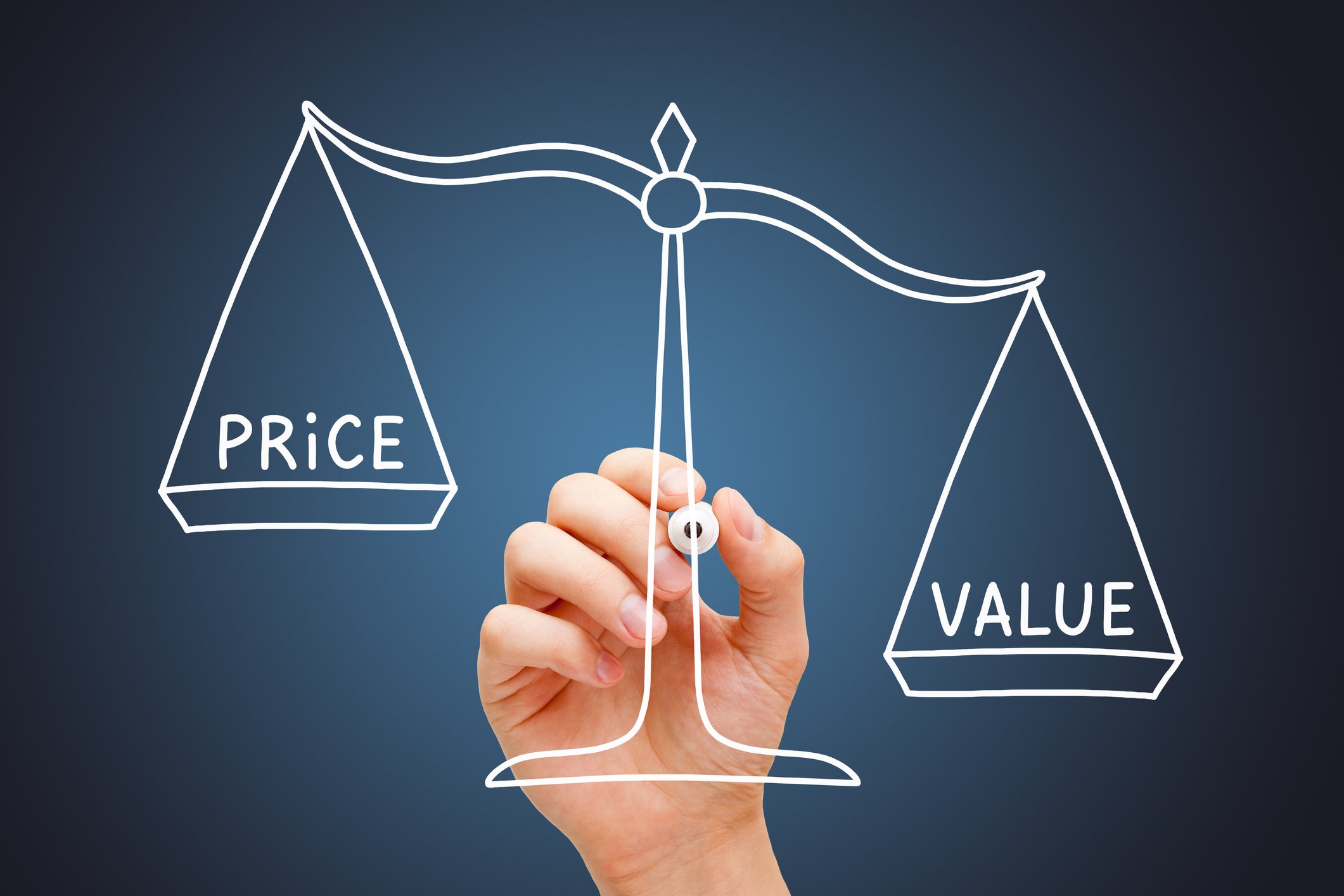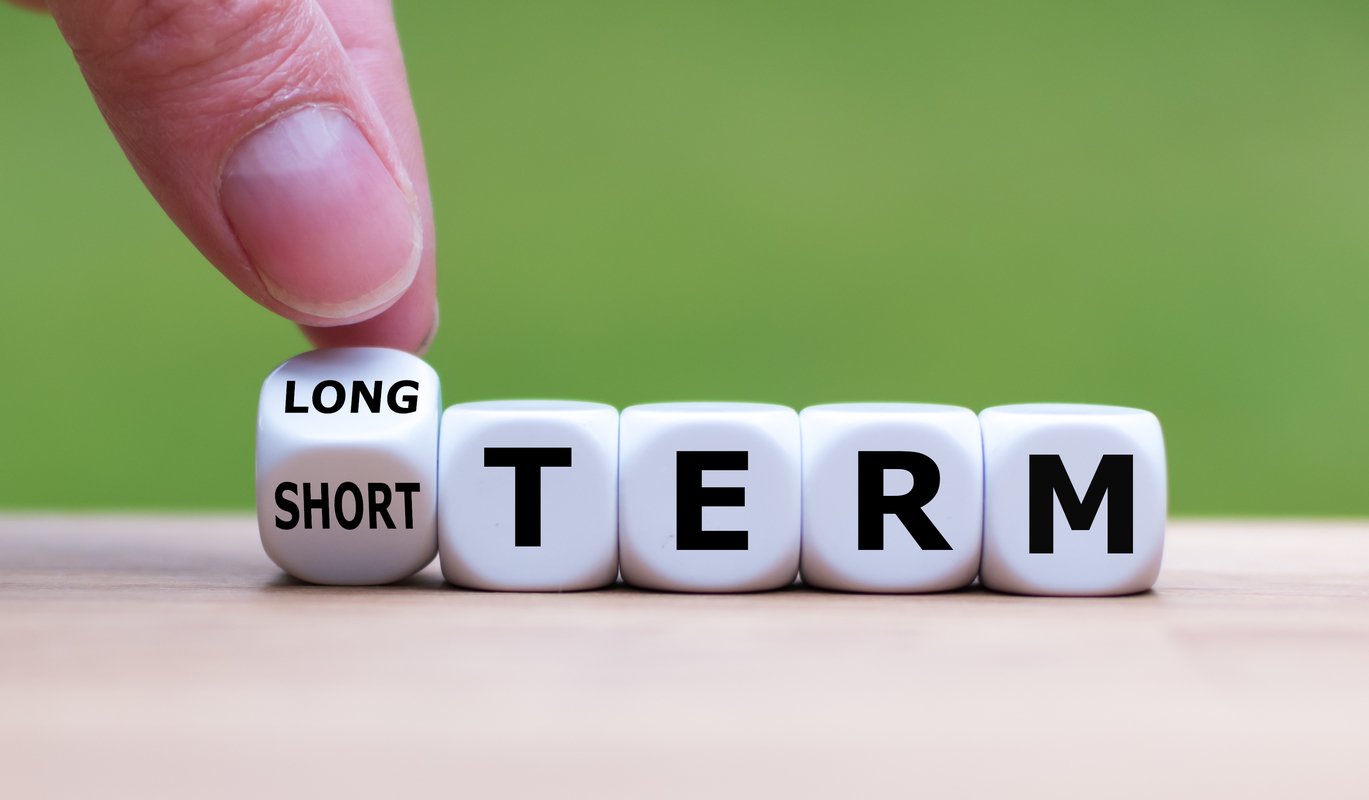Whether you're a novice investor who's just getting your feet wet or you've seen your fair share of bear markets, you've witnessed history over the past five weeks. In a span of 23 sessions since the S&P 500 hit its all-time closing high, the benchmark index has logged 10 of its 13 largest single-day declines, as well as its five biggest single-session gains.
Furthermore, the stock market crashed into bear market territory at a rate that we've never witnessed before. Before the mere 16 trading sessions it took for the market to go from its highs into official bear market territory (down at least 20%), the previous quickest bear market descent on record occurred during the Great Depression and took 35 trading days.
Suffice it to say that the coronavirus disease 2019 (COVID-19) has Wall Street and Main Street very concerned.

Image source: Getty Images.
Healthcare stocks are now dirt cheap because of the coronavirus crash
However, the emotion-and-panic-based selling that's prevailed over the past five weeks has dragged down a handful of industries or sectors that should be largely unaffected by the spread of COVID-19. Although economic activity has ground to a halt in a number of core markets in the U.S., and in key countries around the world, healthcare stocks shouldn't see much in the way of ill effects.
Think about it this way: Long before the coronavirus was spreading within the U.S. and globally, patients around the world were reliant on pharmaceuticals, generic drugs, and medical devices. This doesn't simply stop because COVID-19 is spreading and mitigation measures are put in place. Since we don't get to control when we get sick or what ailment we develop, it makes healthcare stocks potentially the safest place to put your money to work.
The question, of course, is which healthcare stocks to buy?
After a quick screen, it took me just two minutes to locate five healthcare stocks that haven't been valued this cheaply in at least 10 years.

Image source: Getty Images.
Bristol Myers Squibb
Among major pharmaceutical companies, none clocks in with a cheaper valuation than Bristol Myers Squibb (BMY +0.18%). Having averaged a forward price-to-earnings ratio of close to 19 over the past five years, Bristol Myers is now valued at just over 6 times Wall Street's consensus earnings per share (EPS) forecast for 2021.
In November, Bristol Myers Squibb closed its acquisition of Celgene, bringing prized multiple myeloma drug Revlimid into the fold. Revlimid has demonstrated a consistent track record of double-digit sales growth, with volume and duration of use on the rise. Protected from a flood of generic entrants until the end of January 2026, Revlimid should be capable of between $11 billion and $12 billion in sales this year alone.
Bristol Myers also has two other blockbusters to lean on -- cancer immunotherapy Opdivo and leading oral anticoagulant Eliquis. Opdivo is particularly intriguing given the numerous clinical studies currently ongoing where it's being analyzed in combination with an approved cancer therapy. Already generating north of $7 billion a year, Opdivo could grow into a $10 billion annual drug, with a little label expansion.

Image source: CVS Health.
CVS Health
Pharmacy chains are also dirt cheap -- just ask the shareholders of CVS Health (CVS +1.83%). Over the past five years, CVS has been valued at closer to 12.5 times its forward earnings and about 10 times its cash flow. Currently, you could scoop up CVS Health for 7 times next year's EPS and less than 6 times 2021's projected cash flow.
While a slowdown in foot traffic resulting from stay-at-home mandates could slow front-end sales, the thing to realize with CVS Health is that front-end sales have razor-thin margins. The good news is pharmacy sales should remain strong, and the company's 2018 acquisition of health insurer Aetna is liable to lead to an acceleration in the combined company's organic growth rate. Not to mention, the merger will result in increased cost synergies in 2020 and 2021.
CVS is also planning to drive traffic by opening approximately 1,500 HealthHUB health clinics around the country by the end of 2021. These clinics, which provide simple health services and screenings, have been shown to drive increased foot traffic, higher prescription volumes, and an uptick in front-end sales.

Image source: Getty Images.
Alexion Pharmaceuticals
Among biotech stocks, they don't get much cheaper than ultra-rare-disease drug developer Alexion Pharmaceuticals (ALXN +0.00%). Following a decade where Alexion was regularly valued at 22 to 67 times its cash flow, and often well over 30 times forward EPS, investors can now buy this stock for less than 7 times next year's EPS, and a little over 10 times cash flow for 2021.
The secret to Alexion's success is the company's focus on extremely rare indications. This allows Alexion to face little competition, as well as pass along a relatively high price for its therapies without much pushback from insurers. For what it's worth, Alexion has had little trouble getting the vast majority of patients covered for these pricey therapies.
Additionally, Alexion somewhat recently introduced the world to Ultomiris, which is designed to replace the company's blockbuster drug Soliris. The importance of this new therapy is twofold. First, Ultomiris is a protein that's recycled throughout a patient's body, meaning injections are given every eight weeks instead of every two with Soliris. And second, it essentially restarts the patent expiation clock for Alexion on the indications it serves, giving it a longer runway to rake in profits.

Image source: Getty Images.
Jazz Pharmaceuticals
Keeping with the theme of orphan-drug developers, Ireland-based Jazz Pharmaceuticals (JAZZ 0.21%) is certainly at its cheapest valuation in at least a decade. Though Jazz has always presented as an intriguing value stock, with an average five-year forward P/E of 11.3, you can snatch up shares of this specialty biotech for about 5 times next year's EPS.
Why so cheap? It looks to be a combination of concerns over the coronavirus and possible generic competitors to blockbuster drug Xyrem. However, the latter has been a persistent threat for years that's never materialized. All the while, demand and list price for narcolepsy drug Xyrem have continued to rise, leading to steady sales and profit growth for Jazz.
Beyond the 17% net product sales growth from Xyrem in 2019, Jazz is also benefiting from sales growth in Vyxeos, a treatment for two types of newly diagnosed acute myeloid leukemia (AML). Since being approved in August 2017, Vyxeos sales have grown to $121 million a year. AML is a competitive indication, but Vyxeos has double-digit growth potential moving forward.

Image source: Getty Images.
Teva Pharmaceutical Industries
Last, but not least, branded and generic-drug producer Teva Pharmaceutical Industries (TEVA +2.04%) is about as cheap a healthcare stock as they come. Investors can currently pick up shares of the Israeli based drugmaker for less than 3 times next year's consensus profit estimate, according to Wall Street.
Teva has been absolutely put through Wall Street's ringer over the last couple of years. It's settled bribery allegation, cancelled its dividend, dealt with executive turnover, and is facing a 44-state lawsuit over the role it played in producing opioids. And yet, things are beginning to look up from here, thanks to turnaround specialist CEO Kare Schultz.
Since Schultz took the helm, Teva has eliminated about $3 billion in annual operating expenses, and through the sale of noncore assets and organic pay-down has reduced its net-debt by roughly $8 billion. With generic-drug pricing power stabilizing and generic demand unlikely to be impacted by COVID-19, the expectation should be for Teva to deliver at least $2 billion in operating cash flow in 2020 and beyond, if not higher. Though it remains a work-in-progress, the Teva's valuation makes sense here.









